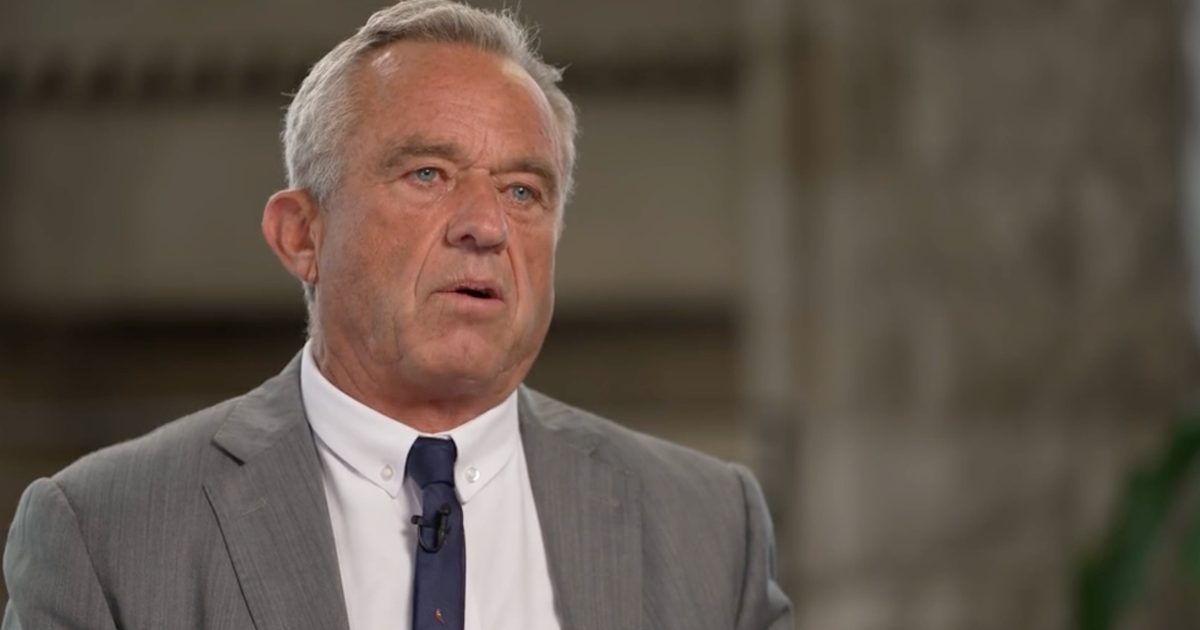Transcript: Eric Rosengren discusses coronavirus and the economy on "Face the Nation," May 24, 2020
The following is a transcript of an interview with Boston Federal Reserve Bank President Eric Rosengren that aired Sunday, May 24, 2020, on "Face the Nation."
MARGARET BRENNAN: Welcome back to FACE THE NATION. We learned this week that nearly 40 million Americans have filed for unemployment benefits over the past two months. And while Congress has passed a number of historically large aid packages, the chairman of the Federal Reserve has warned more help may be needed. Eric Rosengren is head of the Boston Federal Reserve, one of the 12 banks that make up that system. Good morning to you.
FEDERAL RESERVE BANK OF BOSTON PRESIDENT ERIC ROSENGREN: Good morning, MARGARET.
MARGARET BRENNAN: Now you are about to launch another program, the Main Street Lending Program, within days. Now, this is about $600 billion dollars worth of four year loans for mid-sized companies so they can get credit. When do you expect that money to start going out the door?
ROSENGREN: I think money will go out over the next two weeks. As you highlight, this is a program that's just starting up. So we're expecting to have the loan documents up this week. We then have to register the banks, and then we're going to be ready to start issuing the loans.
MARGARET BRENNAN: So do you expect this to be up and functioning, you said, within the week, but to- to be perhaps a little less rocky than the PPP program, that Paycheck Protection Plan that Congress had rolled out?
ROSENGREN: It's a very different program than the PPP program. The PPP program was for- was primarily a grant program. This is a loan program. We've been working on it very hard over the last several months. I expect it will be a relatively smooth opening.
MARGARET BRENNAN: Do you have any indication yet what kind of industries or companies will come to you to ask for this money?
ROSENGREN: So the way the program's designed is businesses that have no problems will probably find it more cost-effective to go directly to banks. Firms that are having great difficulty, banks have to co-invest with us, and the banks may not be willing to do that. What we're really looking for is firms that we're doing fine going into the end of last year, but because of the pandemic have now been significantly disrupted. So the kinds of firms that we're expecting to see would be the firms that have been affected by the pandemic. That includes hotels, restaurants, but it also includes many manufacturing firms that had to shut down either because of state mandates or because of concern for their workers.
MARGARET BRENNAN: And is the aim to avoid large-scale bankruptcies?
ROSENGREN: The goal is to make sure that many of these businesses are able to make it to the point where we no longer have community spread and where individuals once again feel comfortable buying goods, going out in public.
MARGARET BRENNAN: All of us want to know exactly when that might be at. As for the jobless rate in this country, the White House has said they expect double digit unemployment through November. What are you looking at? Is it really going to be double digit unemployment until there's a vaccine?
ROSENGREN: Unfortunately, I think it's likely to be double digit unemployment through the end of this year, and full employment, getting back down to the low levels of unemployment we saw at the end of February, probably takes either a vaccine or other medical innovations that make it much less risky to go out. The principal reason for that is that industries that have been affected, like retail, hotels, transport, are all industries that consumers have to be comfortable. So it's not just that you have to open up the businesses. Consumers have to be comfortable going back and shopping and going out on planes and into hotels.
MARGARET BRENNAN: Yeah, absolutely. There's a debate right now in Congress about whether to extend the enhanced unemployment benefits that, if people can get their claims processed, have been receiving. Those would expire in July. From where you sit, do you believe that kind of extra money is needed and should be extended?
ROSENGREN: I think we need a continued fiscal and monetary policy because double digit unemployment risks actually causing a much more severe outcome in labor markets over time. The exact nature of that has to be up to Congress. But I do think that we're going to need additional fiscal policy.
MARGARET BRENNAN: So an extra $600 dollars, which is what it is, does that make a significant difference?
ROSENGREN: Well, that certainly makes a significant difference for low and moderate income individuals, most of whom are on hourly sal- salaries. So I think that that is certainly one of the ways that you can provide additional support to low and moderate income individuals.
MARGARET BRENNAN: Blacks, Hispanics, women have been disproportionately hit by the economic fallout related to- to COVID-19. How much is what's happening now widening the income inequality that pre-existed this?
ROSENGREN: So as your question highlights, this is a serious problem. First of all, low and moderate income individuals are more likely to be put into unsafe situations. The reason is they're more likely to be in dense living. They're more likely to be taking subways, buses, trains for mass transit. And they're more likely to be hourly workers in industries that require contact with other people. So for that reason, the health outcomes are much more at risk. And also the economic outcomes are much more at risk. So in many businesses, you can work at home. Those tend to be high-income workers. For many low-income workers, they have to go into their job in order to be able to do the job. And those jobs are being disrupted by the fact that consumers are worried about face-to-face contact. So, again, retail, hotels, restaurants are all being impacted. And until everybody's comfortable going into those restaurants and hotels, it's going to just take a little bit longer to get back to full employment than we otherwise would like to see.
MARGARET BRENNAN: New England, where you are, is one of the hardest hit regions of the country. Eighteen percent of New England homeowners, 36% of renters are at risk of missing their monthly mortgage and rent payments, according to the Boston Federal Reserve. How do you avoid spiraling into a financial crisis?
ROSENGREN: So I think at least for the mortgages, banks are well positioned to in terms of having plenty of capital, being well diversified. I think the actions the Federal Reserve has taken to date actually are designed to avoid those kinds of financial spillovers. So we lowered the interest rates to zero. We bought lots of mortgage-backed securities and Treasury securities, and all these facilities are designed to make sure that there continues to be a flow of funds to households and businesses at reasonable rates.
MARGARET BRENNAN: Are we- are we nearing a point, though, where- where Congress, where the Fed, will stop having to throw money at this problem?
ROSENGREN: So I can't speak for Congress, but I will say that the Federal Reserve is going to continue to do what it needs to try to get- get us back to full employment as quickly as possible.
MARGARET BRENNAN: Well, we will have to watch and see what Congress ends up doing. As we know, in the months ahead there will be more debate over more aid. Thank you very much. We will watch for the program you will be launching. Stay with us on FACE THE NATION.



